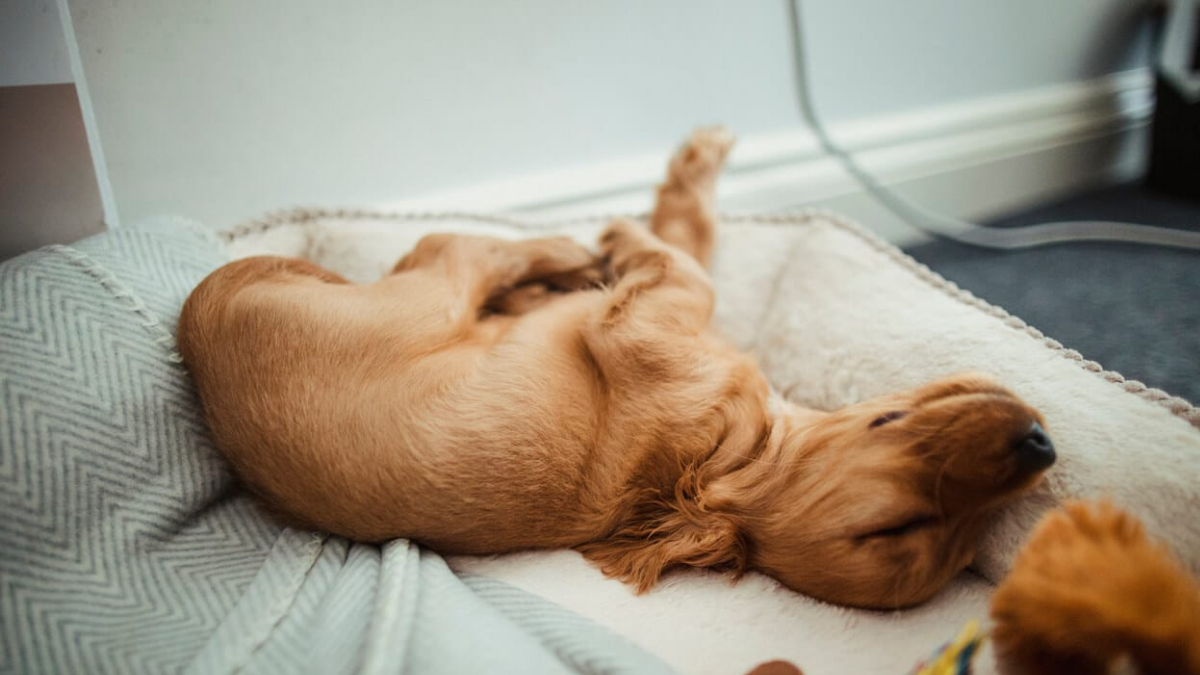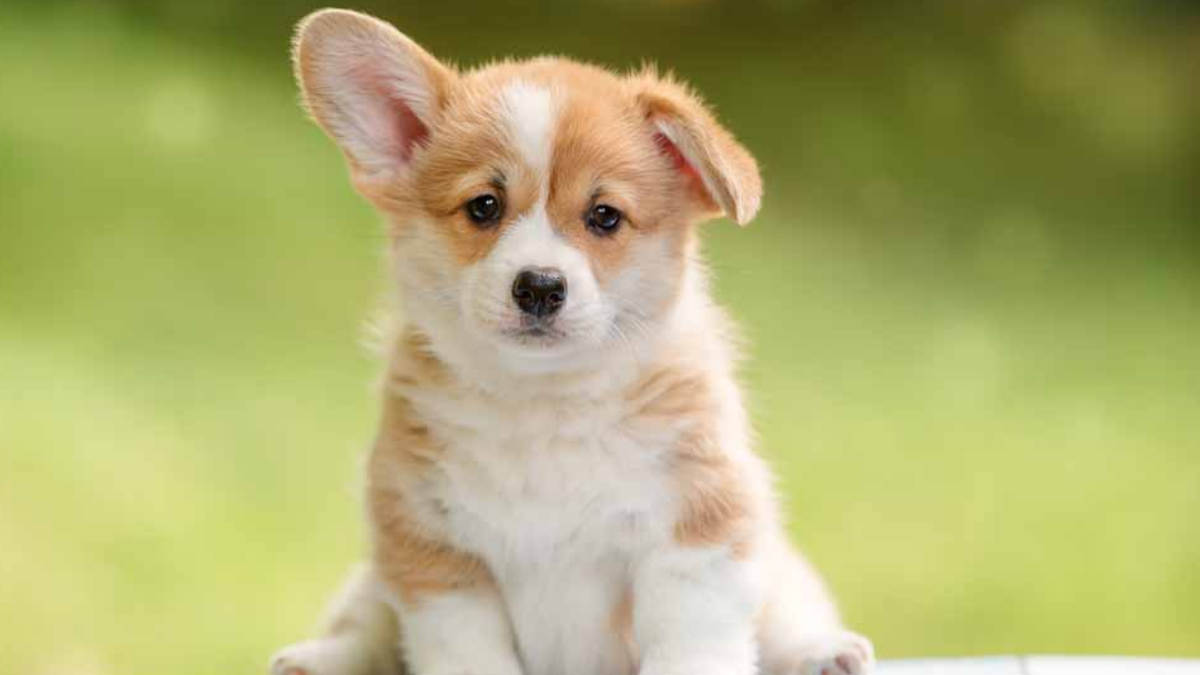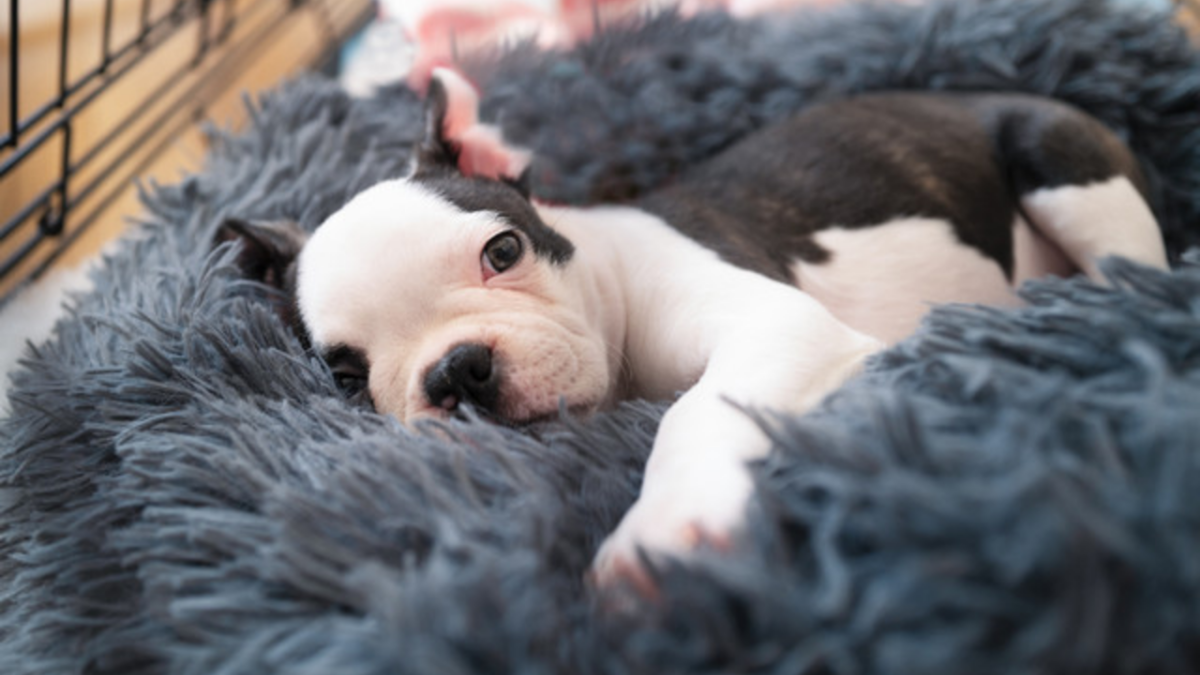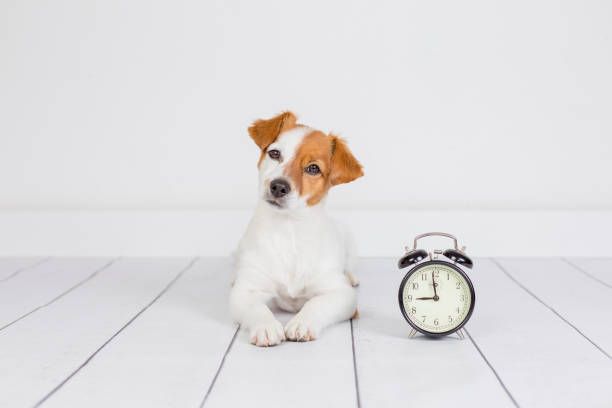Puppy owners often find themselves worrying about their furry friend's health, especially when they notice unusual behaviors or patterns. One such behavior that can cause concern is when puppies breathe fast while sleeping. It is not uncommon for puppies to breathe fast while sleeping, but it can be difficult to determine when it is normal and when it is a cause for concern. So, "Puppy Breathing Fast While Sleeping:" Let's delve into the reasons behind this behavior and understand when it may indicate a potential health issue, ensuring the well-being of our adorable canine companions.
Understanding puppy breathing patterns is essential in identifying abnormal breathing. Puppies have a faster respiratory rate than adult dogs, and their breathing patterns can vary depending on their age, size, and breed. It is normal for puppies to breathe faster while sleeping, especially during the REM (rapid eye movement) stage of sleep. However, if the breathing is excessively fast or irregular, it may be a sign of an underlying health issue.

Key Takeaways
- Puppies often breathe fast while sleeping, especially during the REM stage of sleep.
- It is important to understand normal puppy breathing patterns to identify abnormal breathing.
- If the breathing is excessively fast or irregular, it may be a sign of an underlying health issue, and a veterinarian should be consulted.
Stay Ahead of Your Puppy's Health with the Fi Dog Collar
Ensuring the health and safety of your puppy is paramount, especially when unusual symptoms like rapid breathing during sleep arise. Equip yourself with the Fi Dog Collar, the ultimate tool for monitoring your puppy's well-being. With its advanced GPS tracking and activity monitoring, you can keep tabs on your furry friend’s movements and sleep patterns, giving you peace of mind.
The Fi Dog Collar is designed to alert you to any significant changes that might warrant your attention or a quick vet visit. Don't leave your puppy's health to chance; visit TryFi.com today to see how the Fi Dog Collar can help you stay informed and proactive about your pet’s health and safety.
Understanding Puppy Breathing Patterns
Normal Puppy Breathing Rates
It is normal for puppies to breathe faster than adult dogs. A healthy puppy typically takes 15-40 breaths per minute while resting. During sleep, breathing rates may slow down to around 10-30 breaths per minute.
Breathing rates can vary depending on the breed, size, and age of the puppy. Smaller breeds tend to have faster breathing rates than larger breeds. Puppies that are active or excited may also have faster breathing rates.
Factors Affecting Breathing Rates
Several factors can affect a puppy's breathing rate. For example, puppies may breathe faster when they are hot or anxious. Exercise, excitement, and stress can also cause breathing rates to increase.

Puppies with respiratory infections or heart problems may have difficulty breathing, which can cause their breathing rates to increase. If a puppy's breathing rate is consistently higher than normal, it is important to consult a veterinarian.
Rapid Breathing in Puppies During Sleep
It is common for puppies to breathe rapidly during sleep. This is known as "dream sleep" or REM sleep. During this stage of sleep, puppies may twitch, move their limbs, and even make noises.
Rapid breathing during sleep is usually not a cause for concern. However, if a puppy's breathing is consistently rapid or accompanied by other symptoms such as coughing or wheezing, it is important to consult a veterinarian.
In conclusion, understanding a puppy's breathing patterns is important for monitoring their health. While rapid breathing during sleep is usually normal, any persistent changes in breathing rates should be evaluated by a veterinarian.
Identifying Abnormal Breathing
Fast breathing is common in puppies while they sleep. However, it is important to know when fast breathing becomes abnormal and requires medical attention. In this section, we will explore the signs of respiratory distress and when to worry about fast breathing.

Signs of Respiratory Distress
Respiratory distress is a serious condition that requires immediate medical attention. The following signs indicate that a puppy may be experiencing respiratory distress:
- Bluish gums or tongue
- Wheezing or coughing
- Gasping or panting for breath
- Noisy breathing
- Rapid breathing that does not slow down after a few minutes
If a puppy exhibits any of these signs, it is important to seek veterinary care immediately.
When to Worry About Fast Breathing
Fast breathing is normal in puppies while they sleep. However, if a puppy is breathing rapidly while awake, it may indicate an underlying health problem. The following factors should be considered when assessing a puppy's breathing:
- Age: Puppies younger than 12 weeks may breathe faster than older puppies and adult dogs.
- Activity level: Puppies may breathe faster after playing or exercising.
- Environment: Puppies may breathe faster in hot or humid environments.
- Illness: Puppies with respiratory infections or other illnesses may breathe faster than normal.
If a puppy is breathing rapidly while awake and exhibits any signs of respiratory distress, it is important to seek veterinary care. A veterinarian can determine the underlying cause of the fast breathing and provide appropriate treatment.

Causes of Fast Breathing While Sleeping
Fast breathing while sleeping is a common occurrence in puppies and can be caused by a variety of factors. Understanding the causes can help pet owners determine whether their puppy's breathing is normal or if it requires medical attention.
Dreaming and REM Sleep
One of the most common reasons for fast breathing while sleeping in puppies is dreaming. During rapid eye movement (REM) sleep, puppies may twitch, move their paws, and breathe rapidly. This is because they are dreaming and their body is reacting to the dream. This type of breathing is normal and generally nothing to worry about.
Overheating
Puppies are more susceptible to overheating than adult dogs, and this can cause them to breathe quickly while sleeping. Overheating can occur when puppies are exposed to high temperatures or if they are wrapped up in blankets or clothing that is too warm. To prevent overheating, pet owners should ensure their puppy has access to cool, fresh air and should avoid wrapping them up in too many layers.
Medical Conditions
Fast breathing while sleeping can also be a symptom of an underlying medical condition. Puppies with respiratory infections, heart disease, or other health problems may breathe quickly while sleeping. If a puppy's breathing seems abnormal or if they are experiencing other symptoms such as coughing or wheezing, it is important to seek veterinary attention.
In summary, fast breathing while sleeping in puppies can be caused by dreaming, overheating, or underlying medical conditions. Pet owners should monitor their puppy's breathing and seek veterinary attention if they notice any concerning symptoms.
Monitoring Your Puppy's Breathing
Breathing patterns can be an indicator of a puppy's health. It is important to monitor your puppy's breathing to ensure that it is normal and healthy. Here are some ways to monitor your puppy's breathing:
Tracking Breathing Patterns
One way to monitor your puppy's breathing is to track their breathing patterns. This can be done by observing their breathing while they are sleeping or resting. Normal breathing for puppies is around 15-30 breaths per minute. If you notice that your puppy's breathing is faster than normal, it could be a sign of an underlying health issue. You should also observe their breathing for any unusual sounds such as wheezing or coughing.

Using Technology for Monitoring
Technology can also be used to monitor your puppy's breathing. There are various devices available in the market that can track your puppy's breathing and alert you if there are any abnormalities. These devices are usually worn around the puppy's neck and can monitor their breathing rate, quality, and patterns. Some devices can even track your puppy's activity level and sleep quality. However, it is important to note that these devices should not be used as a substitute for veterinary care. If you notice any abnormalities in your puppy's breathing, you should consult with a veterinarian immediately.
In summary, monitoring your puppy's breathing is an important aspect of their overall health. By tracking their breathing patterns and using technology, you can ensure that your puppy is healthy and happy.
When to Consult a Veterinarian
If a puppy is breathing fast while sleeping, it may be a sign of an underlying health issue. While some occasional changes in breathing patterns are normal, if the puppy is experiencing persistent or severe symptoms, it is important to consult a veterinarian.
Professional Diagnosis
A veterinarian will be able to diagnose the underlying cause of the puppy's fast breathing while sleeping. They may perform a physical exam, including listening to the puppy's heart and lungs, as well as running diagnostic tests such as blood work or X-rays.

Treatment Options
The treatment for a puppy breathing fast while sleeping will depend on the underlying cause. Some possible treatments may include medication, oxygen therapy, or changes in the puppy's environment or diet. In more severe cases, surgery may be necessary.
It is important to follow the veterinarian's recommendations for treatment and to monitor the puppy's breathing closely. If the puppy's breathing does not improve or worsens, it is important to contact the veterinarian immediately.
Preventive Measures and Care
Creating a Comfortable Sleeping Environment
One of the most important things you can do to prevent your puppy from breathing fast while sleeping is to create a comfortable sleeping environment. This means providing a soft, comfortable bed in a quiet, dark room. You should also make sure that the temperature in the room is not too hot or too cold, as extreme temperatures can cause breathing problems in puppies.
Regular Veterinary Check-Ups
Regular veterinary check-ups are essential to ensure that your puppy is healthy and free from any underlying health conditions that could be causing their breathing problems. During these check-ups, your vet will be able to identify any issues and provide appropriate treatment.
Proper Hydration and Nutrition
Proper hydration and nutrition are also important for preventing breathing problems in puppies. Make sure that your puppy has access to fresh, clean water at all times, and that they are eating a balanced, nutritious diet that is appropriate for their age and breed.
By following these preventive measures and providing proper care for your puppy, you can help to ensure that they stay healthy and happy, and avoid any breathing problems while sleeping.

Conclusion
In conclusion, monitoring your puppy's breathing while they sleep is essential for their well-being. "Puppy Breathing Fast While Sleeping" can indicate various factors, from normal dreaming to potential health issues. Understanding these reasons is crucial for ensuring your puppy's health and comfort.
If you notice your puppy breathing rapidly during sleep, it's important not to panic. Sometimes, fast breathing is simply a result of dreams or excitement during sleep. However, if the fast breathing persists or is accompanied by other concerning symptoms such as wheezing or coughing, it's best to consult a veterinarian promptly.
To ensure your puppy's well-being, create a comfortable sleeping environment with a cozy bed and minimal disturbances. Additionally, maintain regular veterinary check-ups to monitor your puppy's overall health and address any concerns promptly.
Remember, being observant and proactive can make a significant difference in your puppy's health and happiness. By understanding the reasons behind fast breathing while sleeping and taking appropriate measures, you can ensure your furry friend enjoys restful and peaceful sleep, promoting their overall well-being.
Frequently Asked Questions (FAQs)
- Is it normal for puppies to have rapid breathing during sleep?
- Yes, it is normal for puppies to breathe rapidly while sleeping. Puppies have a faster metabolic rate than adult dogs, and their respiratory rate is naturally higher. Additionally, puppies' breathing patterns can be irregular during sleep, which can cause rapid breathing.
- What causes a newborn puppy to breathe rapidly while asleep?
- Newborn puppies have underdeveloped respiratory systems, which can cause them to breathe rapidly while asleep. Additionally, the stress of being separated from their mother and littermates can also cause rapid breathing in newborn puppies.
- At what age should I be concerned about my puppy's fast breathing while sleeping?
- If your puppy is breathing rapidly while sleeping but is otherwise healthy and active, there is typically no cause for concern. However, if your puppy's fast breathing persists or is accompanied by other symptoms such as lethargy or loss of appetite, you should contact your veterinarian.
- How can I differentiate between normal and abnormal fast breathing in sleeping puppies?
- Normal fast breathing in sleeping puppies is typically shallow and irregular, while abnormal fast breathing may be accompanied by wheezing, coughing, or other respiratory symptoms. If you are unsure whether your puppy's breathing is normal or abnormal, consult with your veterinarian.
- Should I be worried if my puppy is breathing through its mouth instead of its nose while asleep?
- Breathing through the mouth instead of the nose while sleeping is not necessarily a cause for concern in puppies. However, if your puppy is consistently breathing through its mouth while awake or is exhibiting other respiratory symptoms, you should consult with your veterinarian.
- Can stress or anxiety cause a puppy to breathe faster even when resting?
- Yes, stress or anxiety can cause a puppy to breathe faster even when resting. If you suspect that your puppy's rapid breathing is caused by stress or anxiety, try to identify and address the underlying cause. If the behavior persists, consult with your veterinarian for further guidance.






